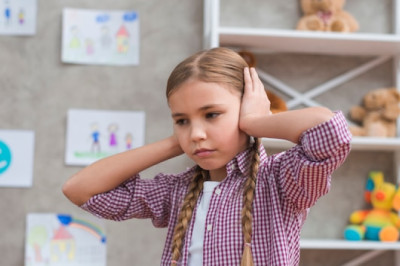Stress is a common experience for many, acting as a response to challenges and demands in life. While stress can be a motivating force, it can also escalate and contribute to the development of depression if not managed properly. Understanding the signs of stress that might lead to depression is crucial for early intervention and prevention. This article explores eight key indicators that stress is taking a toll on your mental health and could potentially lead to depression.
Persistent Sadness or Low Mood

One of the most telling signs that stress may be evolving into depression is a persistent feeling of sadness or a low mood that doesn't seem to go away. This isn't just about having a bad day; it's a deep, lingering emotion that colors your entire outlook on life. You might find little enjoyment in activities that used to bring you happiness, and this shift in mood can be both confusing and distressing. It's important to recognize when sadness becomes a constant backdrop to your life, as it signifies a deeper issue that needs addressing.
Loss of Interest in Activities
Stress can sap your energy and motivation, leading to a noticeable loss of interest in activities you once enjoyed. This sign is particularly significant because it reflects a change in behavior and engagement with life. Whether it's hobbies, socializing, or even basic daily routines, a disinterest in these areas can indicate that stress is impacting your mental health. This withdrawal from activities can further isolate individuals, exacerbating feelings of loneliness and potentially leading to depression.
Changes in Appetite or Weight
Significant changes in appetite or weight are common physical manifestations of stress that could herald the onset of depression. Some people may find themselves eating more as a way to cope with their feelings, leading to weight gain. Others might lose their appetite altogether, resulting in weight loss. These changes can be gradual or sudden, but either way, they reflect how stress is affecting your body and mind. It's essential to notice these shifts, as they can have broader implications for your overall health.
Sleep Disturbances
Trouble sleeping, whether it's difficulty falling asleep, staying asleep, or experiencing unrestful sleep, is a common indicator of stress. Over time, these sleep disturbances can become a significant factor in the development of depression. Lack of quality sleep affects your mood, energy levels, and ability to think clearly, creating a vicious cycle where stress and sleep problems feed into each other. Addressing sleep issues early can help mitigate their impact on your mental health.
Physical Symptoms
Stress can manifest physically in various ways that may not initially be linked to potential depression. Common symptoms include headaches, muscle tension or pain, stomach problems, and fatigue. These physical signs are your body's response to prolonged stress and can significantly affect your daily functioning. Recognizing these symptoms as related to stress is important, as they can also contribute to a declining mental state, pushing an individual closer to depression.
Irritability or Anger
An increase in irritability or anger can be a sign that stress is starting to take a toll on your emotional well-being. You might find yourself with a shorter temper, quick to frustration over minor inconveniences or interactions. This heightened state of irritability not only affects your relationships with others but can also lead to feelings of guilt or shame after outbursts, further contributing to depressive feelings. It's crucial to recognize this change in emotional response as a signal to seek support.
Difficulty Concentrating
Stress can scatter your thoughts and make it hard to focus on tasks at hand. This difficulty concentrating can affect your work, studies, and daily activities, leading to a sense of inadequacy and decreased productivity. The ongoing struggle to maintain focus and meet responsibilities can be incredibly frustrating, potentially leading to feelings of worthlessness or hopelessness, which are core symptoms of depression. Identifying concentration issues as a stress response is vital for seeking appropriate interventions.
Withdrawal from Social Situations
Withdrawing from social situations is a common reaction to stress, especially if you're feeling overwhelmed. You might start to avoid friends, family, and social gatherings, preferring isolation over interaction. While it's normal to need some alone time, excessive withdrawal can be a sign that stress is affecting your mental health. Isolation can lead to increased feelings of loneliness and sadness, making it harder to manage stress and increasing the risk of developing depression. Recognizing this tendency to withdraw is a critical step towards seeking help and reconnecting with others.











Comments
0 comment